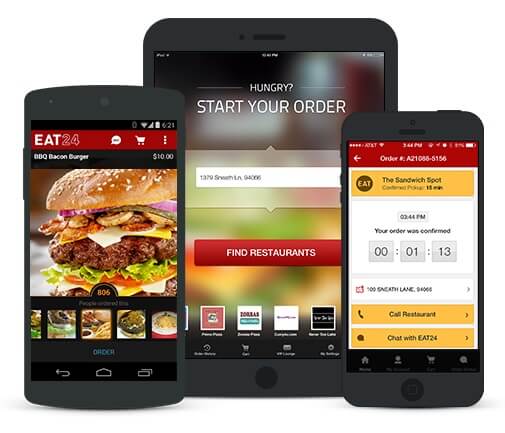The food delivery business remains a hot sector for investors, despite recent high-profile ups and downs. Here in Europe, for example, we saw Brussels-based Take Eat Easy fold recently after failing to secure a much-needed cash injection. The entry of global heavyweights such as UberEATS and Amazon Fresh certainly adds pressure to other players. However, with the UK’s Deliveroo being funded to the tune of £250 million ($306 million) recently, Berlin-based Delivery Hero rumored to be lining up an IPO, and juggernaut Just Eat seeing its stocks soaring, the sector definitely isn’t slowing down.
And then there’s the B2B market. City Pantry, in the UK, raised £1.1 million ($1.35 million) for its office catering business. [Disclosure: The fund I manage, Angel CoFund, is an investor in City Pantry.] The B2B market doesn’t face the same flood of business around peak ordering times as B2C players do, since corporate orders tend to be placed well in advance, so companies in this space can plan their staffing levels and delivery management ahead of time.
We’re seeing similar growth across the pond in San Francisco, too. A few weeks ago, we heard that on-demand delivery service Postmates – which focuses primarily on food delivery – is raising $100 million in additional funding. Postmates is apparently moving to gain market share against competitors as the on-demand meal delivery space expands. Competitors includ Sprig, which specializes in healthy food with traceable ingredients, Grubhub/Seamless, DoorDash, and – again – UberEATS and Amazon Fresh.
So, what is so interesting about this sector? First of all, obviously, eating is both a pleasure and a necessity. The average UK household spends 20 percent of its disposable income on food, making Britain’s food market worth a comfortable £150 billion ($184 billion) a year. In the US, recent findings from Morgan Stanley Research revealed an enormous yet unfulfilled market opportunity: As of 2015, approximately $210 billion worth of food is ordered for delivery or takeout annually. Last year, two of the industry heavyweights – Grubhub/Seamless and Eat24 – generated a combined $2.6 billion, implying an underpenetrated yet massive market.
Add to this an increasing demand for high quality, healthy, and nutritious meals that shows no signs of abating — along with a desire for convenience — and you have an area that is rich in opportunity for those that can excel at giving customers what they want. Whether that’s by receiving freshly cooked meals (from a central kitchen or restaurant) or via recipe boxes (which take the headache out of deciding what to have for dinner and prevent a last-minute dash to the supermarket).
Food delivery does present some big challenges that other sectors don’t have to deal with, though – notably the easily perishable nature of the product and our inherently limited tolerance for delays (when we’re hungry we want to eat). This means it is a cost-intensive market to operate in, especially when the player has to manage a large fleet of drivers to fulfil promised delivery times – something that is already posing a challenge for less established players. UberEATS is learning this the hard way by giving customers money off for late delivery, directly affecting its bottom line.
Future success for every player will depend on the quality of the food but, more importantly, on the efficiency of the delivery: having to wait too long simply isn’t convenient and will make customers turn to a willing competitor.
Then there is the challenge of drivers and cyclists, with competitors willing to poach each other’s delivery staff to bolster their own operations. Drone delivery is not yet being taken seriously, but food delivery players will be watching trials such as the one with “ground drones” in the UK with great interest. Automating this side of the business makes this part of food delivery more reliable.
Like any market in flux, there is the question of whether there is still room for new entrants or if we’ll see consolidation, with more established players expanding their offering to cater to different dietary requirements.
Tim Mills is Investment Director at UK-based Angel CoFund.
VentureBeat's mission is to be a digital town square for technical decision-makers to gain knowledge about transformative enterprise technology and transact. Learn More



